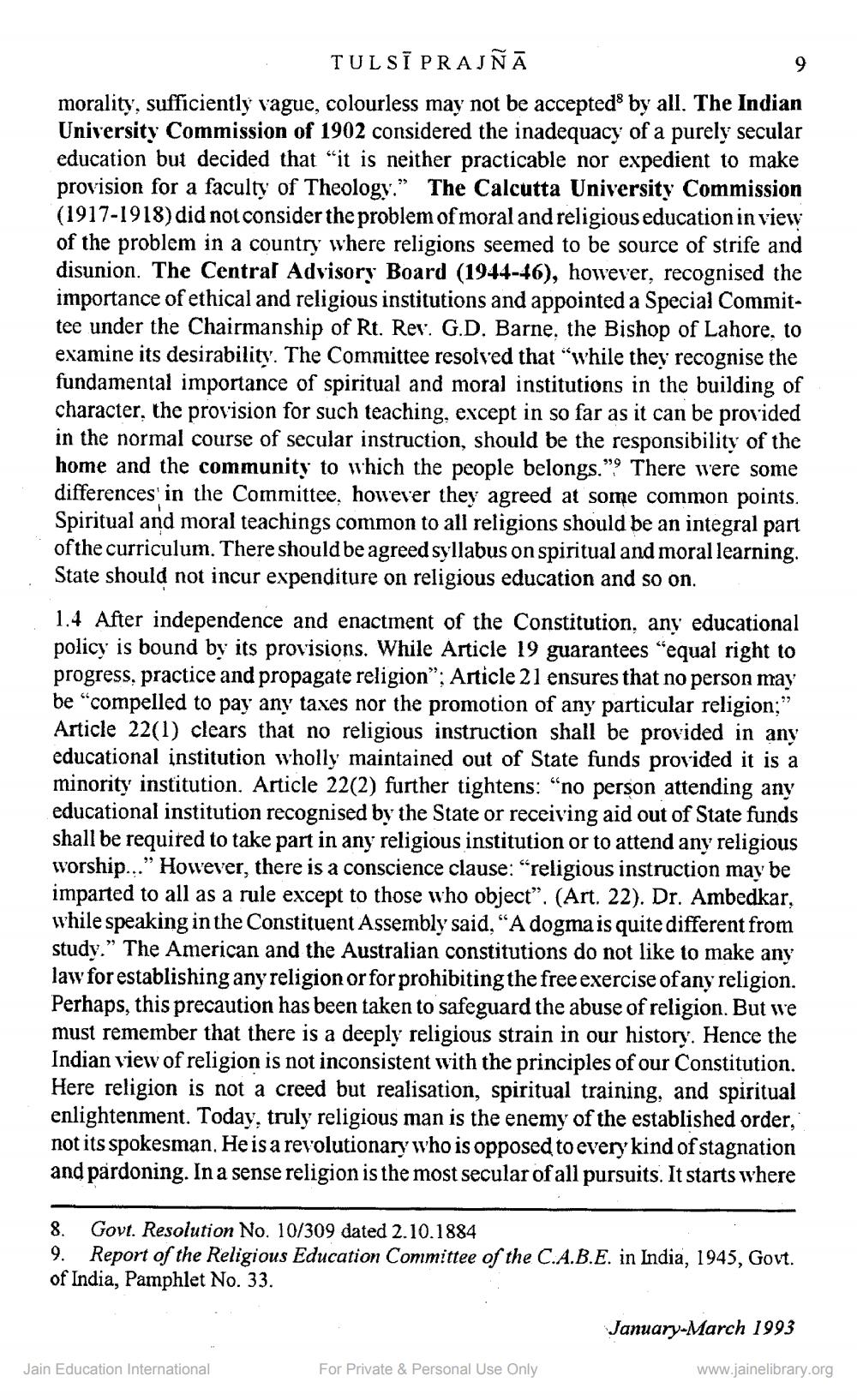________________
TU L SĨ PRAJ [A morality, sufficiently vague, colourless may not be accepted by all. The Indian University Commission of 1902 considered the inadequacy of a purely secular education but decided that “it is neither practicable nor expedient to make provision for a faculty of Theology." The Calcutta University Commission (1917-1918) did not consider the problem of moral and religious education in view of the problem in a country where religions seemed to be source of strife and disunion. The Central Advisory Board (1944-46), however, recognised the importance of ethical and religious institutions and appointed a Special Committee under the Chairmanship of Rt. Rer. G.D. Barne, the Bishop of Lahore, to examine its desirability. The Committee resolved that "while they recognise the fundamental importance of spiritual and moral institutions in the building of character, the provision for such teaching, except in so far as it can be provided in the normal course of secular instruction, should be the responsibility of the home and the community to which the people belongs." There were some differences in the Committee, however they agreed at some common points. Spiritual and moral teachings common to all religions should be an integral part ofthe curriculum. There should be agreed syllabus on spiritual and moral learning. State should not incur expenditure on religious education and so on. 1.4 After independence and enactment of the Constitution, any educational policy is bound by its provisions. While Article 19 guarantees “equal right to progress, practice and propagate religion”; Article 21 ensures that no person may be "compelled to pay any taxes nor the promotion of any particular religion;" Article 22(1) clears that no religious instruction shall be provided in any educational institution wholly maintained out of State funds provided it is a minority institution. Article 22(2) further tightens: "no person attending any educational institution recognised by the State or receiving aid out of State funds shall be required to take part in any religious institution or to attend any religious worship...” However, there is a conscience clause: "religious instruction may be imparted to all as a rule except to those who object”. (Art. 22). Dr. Ambedkar, while speaking in the Constituent Assembly said, "A dogma is quite different from study.” The American and the Australian constitutions do not like to make any law for establishing any religion or for prohibiting the free exercise of any religion. Perhaps, this precaution has been taken to safeguard the abuse of religion. But we must remember that there is a deeply religious strain in our history. Hence the Indian view of religion is not inconsistent with the principles of our Constitution. Here religion is not a creed but realisation, spiritual training, and spiritual enlightenment. Today, truly religious man is the enemy of the established order, not its spokesman. He is a revolutionary who is opposed to every kind of stagnation and pardoning. In a sense religion is the most secular of all pursuits. It starts where
8. Govt. Resolution No. 10/309 dated 2.10.1884 9. Report of the Religious Education Committee of the C.A.B.E. in India, 1945, Govt. of India, Pamphlet No. 33.
January March 1993
Jain Education International
For Private & Personal Use Only
www.jainelibrary.org




